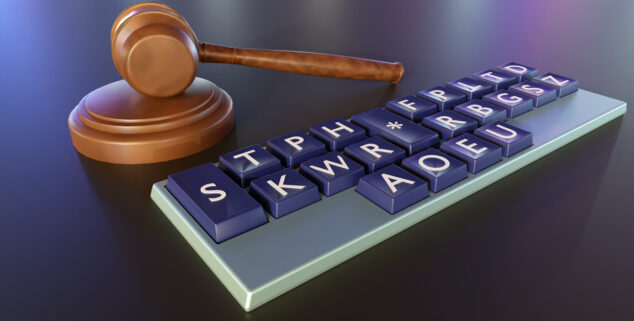Opinion
Don’t let courts force you into trusting your life to a tape recorder
 Image by Love Employee
Image by Love EmployeeOPINION – Technology, though imperfect, is better than the human brain at many things: remembering passwords or counting the steps we take each day. But in a courtroom, where the accuracy of testimony can determine a person’s fate – overreliance on flawed technology can have dire consequences.
In a drive to cut costs, court officials aim to replace live court reporters with electronic recordings. As an attorney in Los Angeles for 16 years, I know this is a grave mistake for justice because I have seen the consequences firsthand.
My client and her children, survivors of domestic violence, experienced this injustice in family court. During a deposition, important parts of her testimony were deleted due to an electronic recording error. The mistake was only acknowledged after months of litigation, when the company hired to transcribe the recording admitted to erasing 50 pages of testimony. But by then, it was too late. The judge denied the restraining order against an abusive ex-husband. It’s not hard to see how such a mistake could have a tragic outcome.
Court reporters have long been known as “guardians of the record” because their extensive training enables them to capture precise, verbatim records that serve as the foundation of justice. To ensure an accurate account of what was said in court, California’s standard for court reporter accuracy is 97.5% – the highest in the nation.
That same standard cannot be met by electronic reporting technologies. Equipment failures, poor acoustics, and background noise are just a few of the variables that compromise accuracy. These technologies have a poor record when it comes to speech from individuals who learned English as a second language and use regional/ethnic dialects.
Even the best electronic recordings result in transcripts missing words, replaced with verbal flags like “[inaudible]” or “[unintelligible]”. And at worst, whole pages could be missing without any flags at all. And that’s presuming already over-worked courtroom personnel even turn on the recorders in the first place.
Despite the risks, the courts are actively lobbying for legislation to expand the use of this flawed technology in courtrooms across the state.
Their efforts will only deepen the justice divide. Those with more money will pay a human reporter for an accurate record, leaving everyone else to rely on electronics and hoping for the best.
Lawmakers have several options for ensuring access to accurate court records. First, California has a pipeline of students in court reporting schools and on waiting lists. By authorizing provisional licensure of court reporters as California has already done for attorneys, we can move trained reporters into our courtrooms quicker.
Additionally, the Legislature should pass AB 3013 to authorize the use of remote court reporting. A single reporter could capture the record in Los Angeles, Palmdale, and Santa Clarita on the same day, increasing coverage and protecting the accuracy of court records. California should also expand our ranks of voice writers – highly trained professionals who capture the spoken word with the help of specialized computer software.
Remote reporters and voice reporters’ can avoid catastrophic errors by detecting transcription obstacles in real time, even pausing proceedings if necessary to ensure an accurate record. But until all courts become serious about recruitment and retention, litigants like my client will continue to suffer.
When freelance court reporters can earn upwards of $3,000 per appearance, courts are in competition for talented reporters. They must improve wages and offer flexibility, rather than threatening to take jobs away and replace reporters with electronic recordings.
Court reporters are the backbone of a functioning judicial system. Lawmakers should not let the courts [inaudible] our access to justice by embracing [unintelligible] technology that threatens the [garbled audio] of the justice system and the rights of its citizens.
Los Angeles family attorney Melissa B. Buchman specializes in resolving family disputes with litigation as well as mediation. She also does family law appeals.
Want to see more stories like this? Sign up for The Roundup, the free daily newsletter about California politics from the editors of Capitol Weekly. Stay up to date on the news you need to know.
Sign up below, then look for a confirmation email in your inbox.

Thank you! I’ve been an official reporter in state and federal courts in WV for the past 42 years, and our courts are turning to ER as the answer. Instead of raising salaries commensurate with other professionals, the replacement is ER as officials retire. The ER system doesn’t allow for live readbacks or rough drafts to our judges. And last week two of the ER systems went down, requiring one judge to cancel their docket for three days. Unacceptable.
I appreciate your article and feel your frustration. Thank you for sharing your personal experiences.